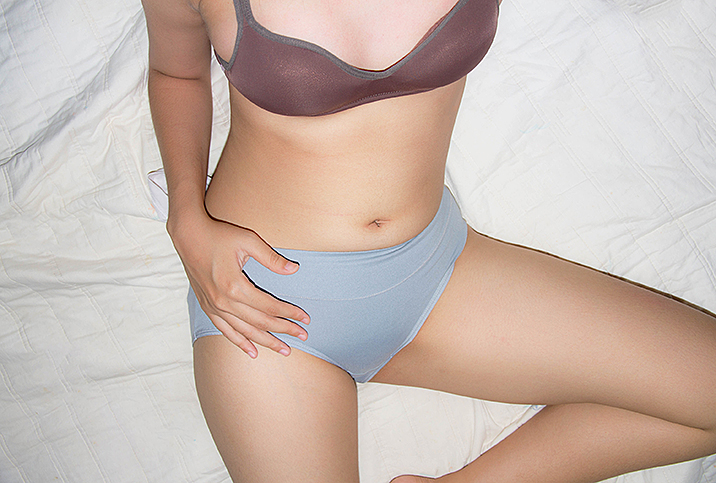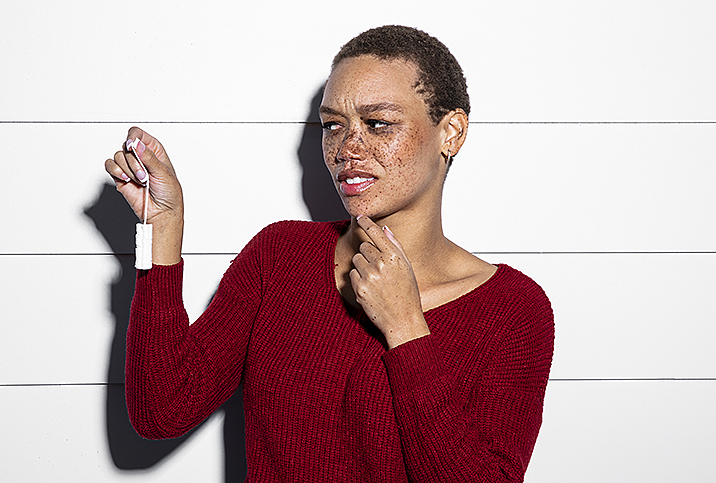What to Do When You Don't Have WAP

Although rapper Cardi B might have you believe that WAP (aka "Wet-Ass Pussy") is something horny folks proudly experience, whether or not you need a mop and bucket to clean up after your next sexual experience may not be entirely in your control.
It’s true that being aroused does create extra wetness, but a healthy vagina is always at least moist. Vaginal lubrication is a natural physiological process that helps protect genitals from injury and tearing while keeping the vagina clean and healthy.
However, there are certain medications and surgical procedures—including those to treat early menopause—that can affect your vagina’s ability to lubricate.
Early menopause
Many women won't face their first significant bouts with vaginal dryness until they reach menopause, that point in their lives when they stop ovulating and their ovaries stop producing estrogen, a hormone that plays a key role in keeping the vagina lubricated. Without adequate estrogen, the skin and tissues of the vagina become thinner and less elastic, which can cause it to become dry and lead to difficult and often painful sex. On average, menopause occurs between the ages of 45 and 51, according to a 2011 study in the journal Obstetrics and Gynecology Clinics of North America.
However, early menopause, when ovulation halts sometime before age 45, can be brought on by medical interventions, including cancer treatments such as radiotherapy and chemotherapy. These treatments can be toxic to the reproductive system and can cause premature ovarian failure, leading to menopausal symptoms including vaginal dryness, infertility, irregular periods, and loss of libido. Operations to remove the ovaries, including a hysterectomy, can lead to forms of "surgical menopause" that can also greatly impact a body's ability to produce estrogen.
Contraceptive injection
The progestogen-only contraceptive injection, first introduced in the United States in 1959 to manage menstruation and now commonly sold under the brand name Depo-Provera, has also been known to cause estrogen levels to plummet. The injection doesn't affect everyone in the same way: one-third of users in a 2013 study retained relatively normal levels of the hormone. But many women injected with progestogen will face lowered estrogen levels, and in some cases, those levels will drop to the same point often seen in women going through menopause.
Surgical excision of endometriosis
There's no known cure for endometriosis, a condition where tissue similar to the lining of the womb grows elsewhere on the body, causing chronic pain, uncomfortable sex and irregular bleeding. One way to treat its symptoms is surgically removing any tissue that's affected by the disease. Women and Children's Health published a booklet explaining that excision surgery to remove the endometrial tissue found around the ovaries has been reported to help relieve pain in about 60 percent of people who have the procedure. However, there's a risk that excision surgery could damage healthy ovarian tissue and diminish a woman's reproductive potential, leading to early menopause and difficulty maintaining WAP.
Loop electrosurgical excision procedure (LEEP)
If a cervical screening shows abnormal cells in the cervix, a doctor may recommend a loop electrosurgical excision procedure (LEEP), which involves carving out the abnormal tissue through use of fine wire heated by electricity. LEEP is considered a preventive procedure for cervical cancer, which is most commonly caused by the human papillomavirus (HPV). According to a 2011 study in Obstetrics & Gynecology journal, the procedure is seen as safe and effective, with 99 percent of women who experienced any post-procedure symptoms reporting them as only very mild to mild.
A 2007 study in the International Journal of Obstetrics found that women who had undergone LEEP saw significant dips in sexual arousal, frequency of intercourse and "spontaneous interest in sex" during the first six months, with the latter two symptoms often remaining after two years despite vaginal lubrication staying at normal levels. Another study in the Journal of Sexual Medicine looked at 89 premenopausal women whose LEEP caused a "small but significant" decrease in vaginal elasticity about six months after the procedure.
If you're experiencing vaginal dryness, please don't go to TikTok for guidance. As with all sexual health concerns, a doctor should be your first stop, and depending on your symptoms, they're likely to suggest some standard remedies:
- Topical over-the-counter treatments, including moisturizers and water-based lubricants
- Topical estrogen treatments, including creams, suppositories and rings
- Hormone replacement therapy (HRT)
How wet your vagina is or isn’t doesn’t define your interest in sex. You can still be a certified freak, for seven days every week, while experiencing vaginal dryness—you just might need to take some extra precautions if you’re wanting to have sex.


















